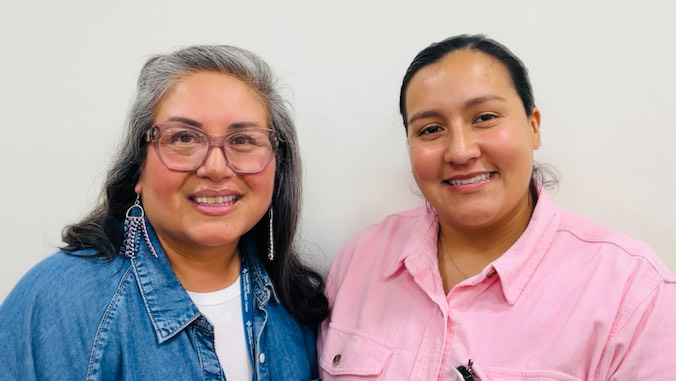
Hawaiʻi is home to one of the nation’s most diverse populations, yet minority communities’ needs are often overlooked. Hawaiʻi County, home to thousands of non-English-speaking migrant farmworkers, plays a vital role in the economy with 4,220 farms producing 48% of the state’s agricultural sales. Workers on these farms, however, often struggle to access healthcare due to language barriers and the complexity of the system.
This group of hard-working people do so much for our county, and they deserve to receive quality services.—Cisneros-Zavala
Two University of Hawaiʻi at Mānoa Thompson School of Social Work & Public Health students, Claudia Hartz and Maria Alejandra Cisneros Zavala, are helping to address these issues as part of their employment-based practicum experience. Through a collaboration with the Hawaiʻi Island Community Health Center (HICHC), they are engaging in a health needs assessment, which aims to identify and understand the unique healthcare needs of the migrant seasonal farmworker population in and around Kona.
“I am interested in finding ways to support the farmworker population,” Cisneros-Zavala said. “This group of hard-working people do so much for our county, and they deserve to receive quality services.”
Needs identified
Surveying 62 county farmworkers, the assessment highlighted the following pressing needs:
- Bilingual services
- On-site/same-day medical appointments
- Affordable dental care
- Counseling services
- Clinic to address identified needs
In response to the survey’s findings, HICHC plans to establish a clinic that offers culturally competent, affordable and high-quality care specifically designed for farmworkers and their families.
Wendy Lum, field education coordinator at the Thompson school, oversaw the students’ placement.
“Claudia and Maria are pioneers behind this clinic idea,” she said. “They have had incredible reach to the Kona community through their bilingual skills and lived cultural experience.”
Personal connections fuel dedication
Both Hartz and Cisneros-Zavala share a personal connection to the farmworker community. Their grandfathers were Braceros, Mexican migrant farmworkers crucial to the U.S. economy during WWII.
“I see my grandfather in many of the people I meet and help,” Hartz said. “He missed being home, but sacrificed anyway, coming to the U.S. to work to support his family. I see that happening [in Hawaiʻi County]. Both women and men leave family behind while they pick coffee here.”
Hartz is a 2023 alumna of the Thompson school Master of Social Work (MSW) program and Cisneros-Zavala plans to graduate with her MSW this spring.
—By Maria Pou

